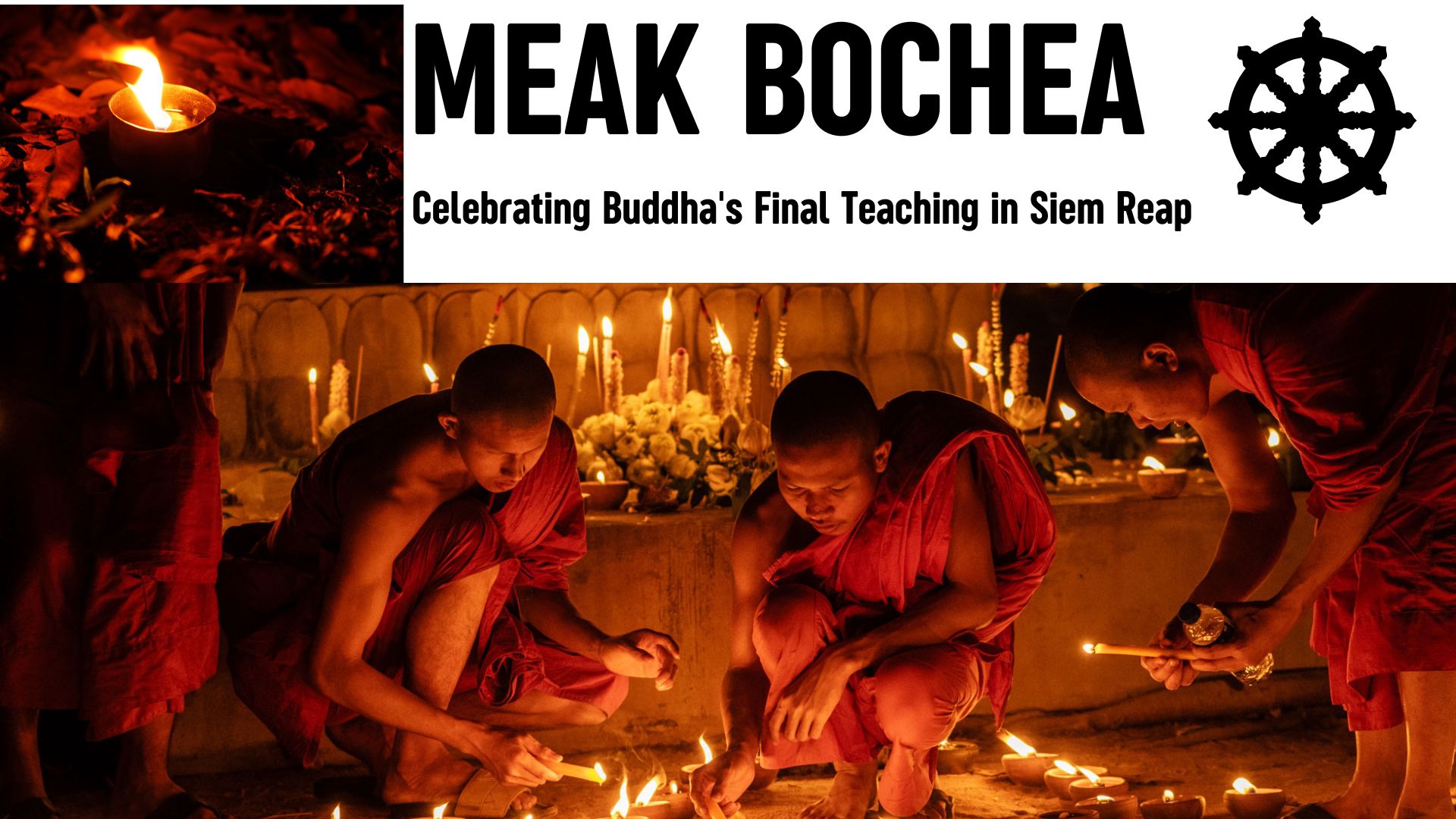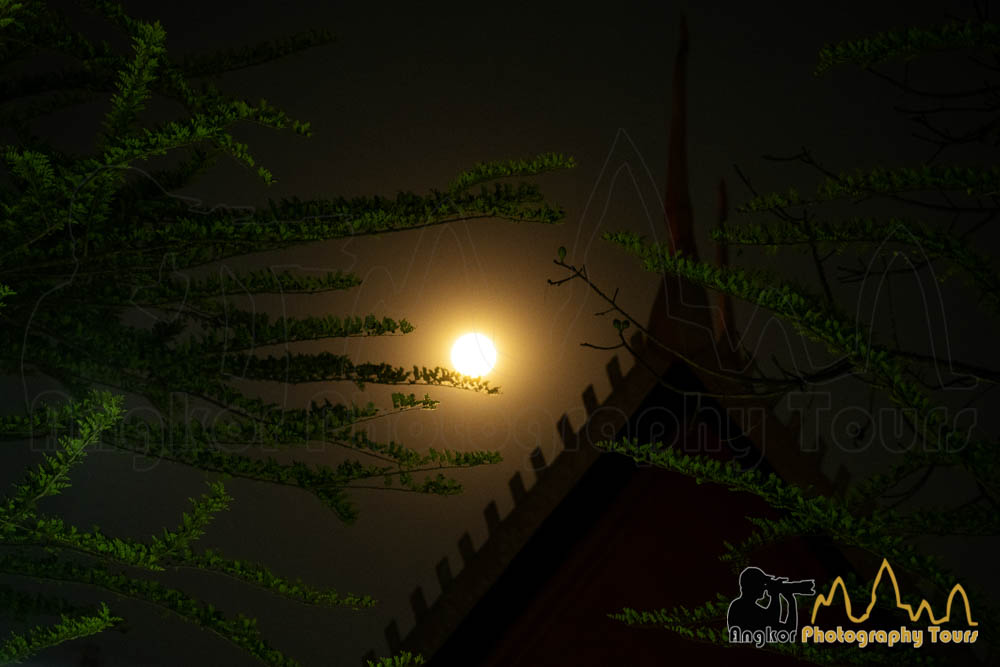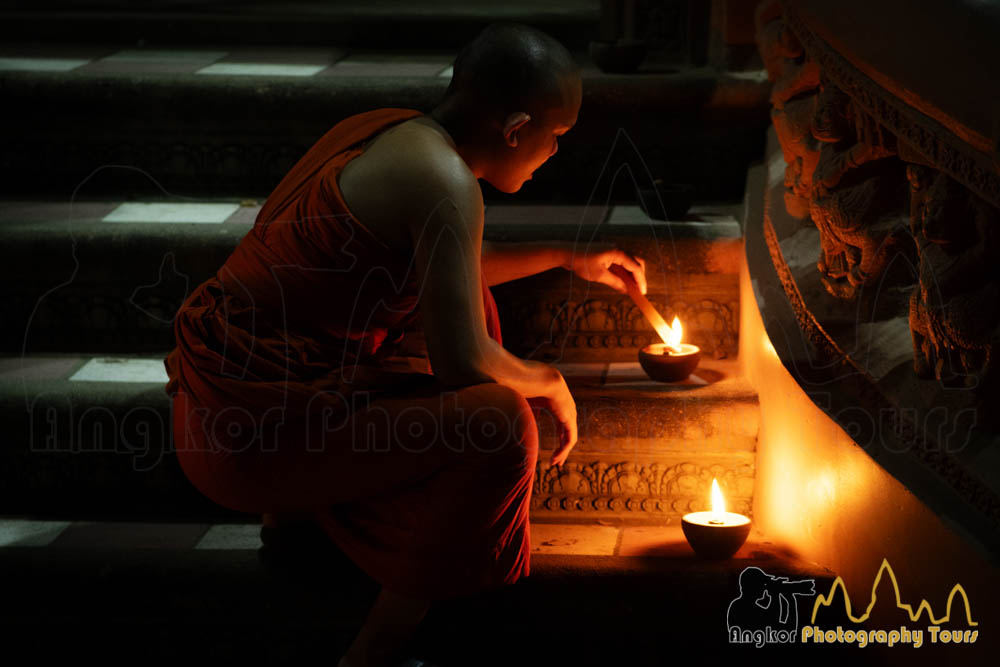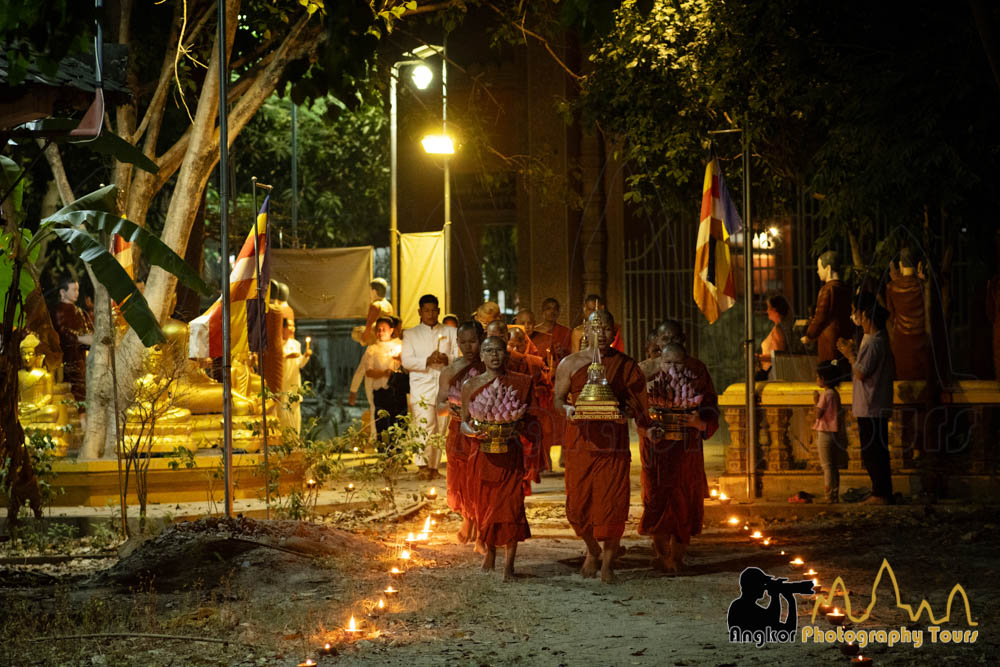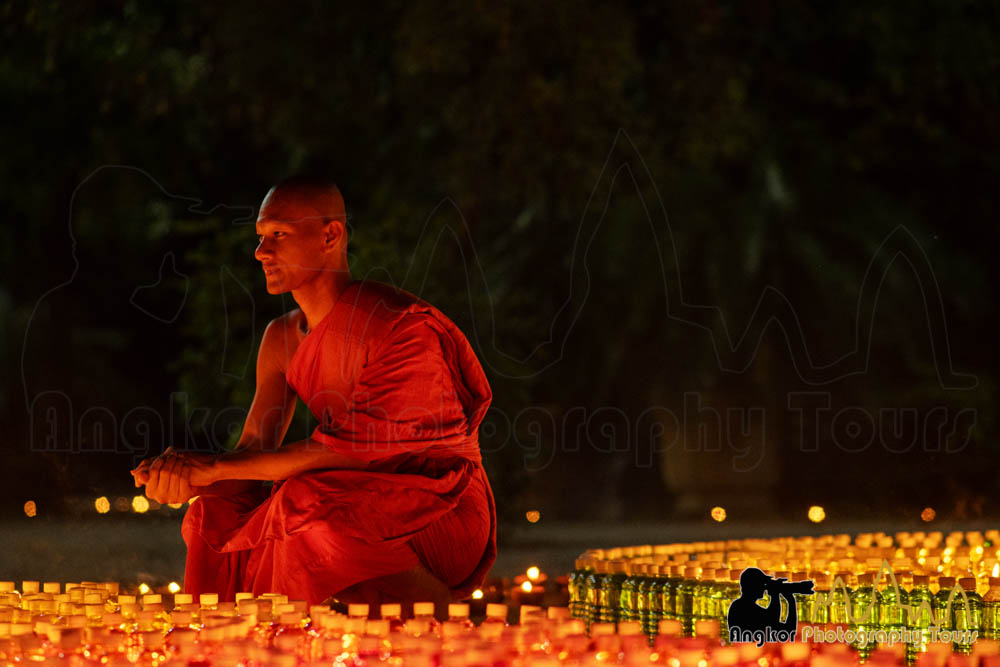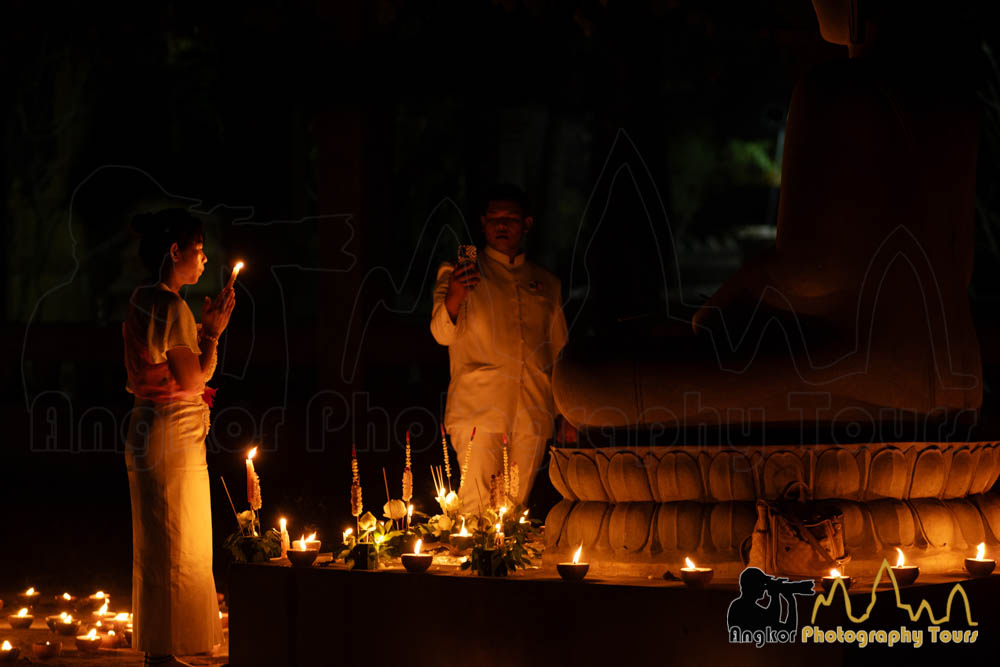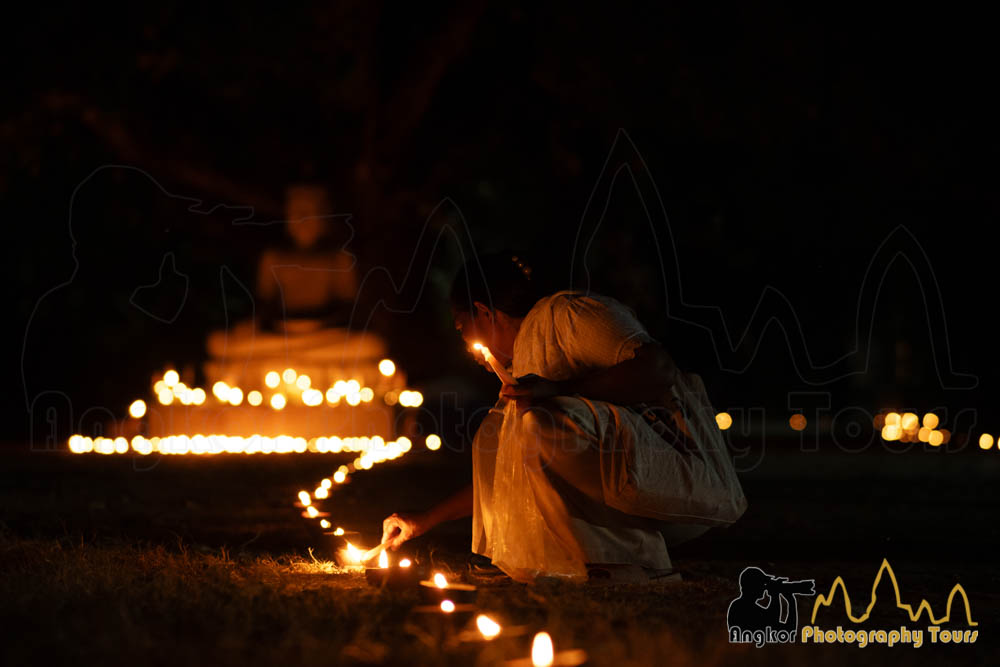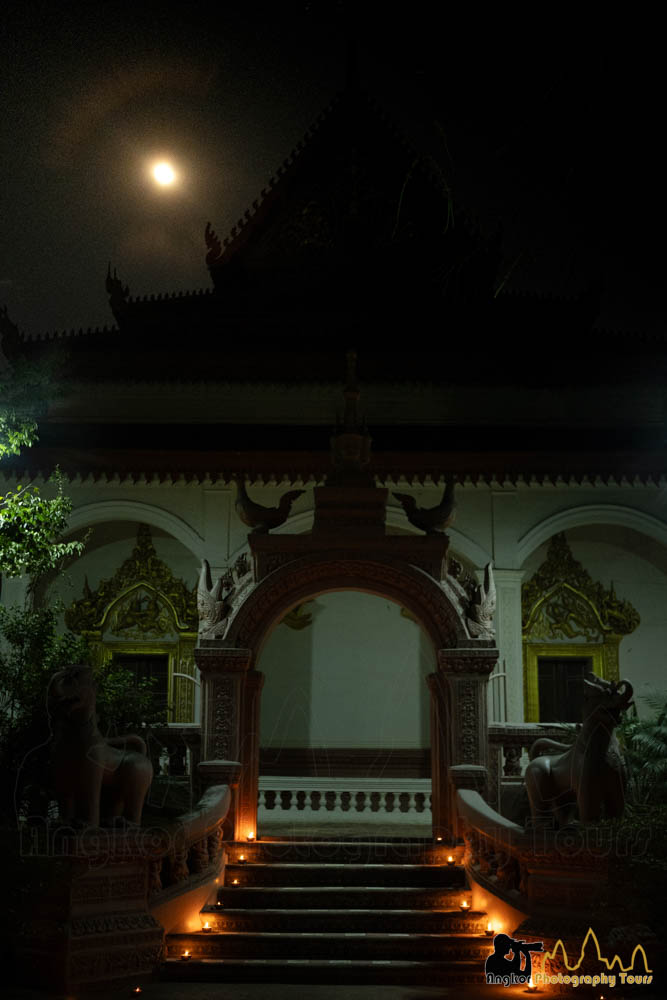☸️ WHAT IS MEAK BOCHEA DAY?
Meak Bochea (មាឃបូជា in Khmer) is a significant Buddhist festival in Cambodia, celebrated on the full moon of the third lunar month (often falls during the month of February). This sacred Buddhist festival, known as Māgha Pūjā in several Southeast Asian nations including Thailand, Laos, Myanmar, and Sri Lanka, has its origins in Theravāda Buddhism. It emphasizes moral reflection, merit-making, and spiritual renewal.
Meak Bochea marks the day when 1,250 enlightened monks spontaneously gathered to hear the Buddha’s final sermon called the “Fourfold Assembly”.
During this sermon, Buddha distilled Buddhism’s essence into three principles: Ceasing all evil actions, performing only good deeds, purifying the mind through meditation and mindfulness. Meak Bochea also commemorates Buddha’s prophecy of his own death (Parinirvana), which occurred three months later. Notably, his birth, enlightenment, and death are collectively celebrated in Cambodia as Visak Bochea Day.
In Cambodia, Meak Bochea holds special significance beyond its historical importance. During the Khmer Rouge regime, Buddhist practices were severely suppressed, and many sacred texts and traditions were nearly lost. The revival of Meak Bochea celebrations symbolized not just religious freedom, but also the resilience of Cambodian cultural identity. In 2025, Siem Reap’s most significant Meak Bochea ceremonies were held at two of the city’s historic wats: Wat Damnak and Wat Bo, both ancient pagodas that hosted the observances on 12th February 2025.
🙏 MEAK BOCHEA, THE EVENING PROCESSION
As dusk settled over the city, a pale orange full moon shyly emerged from behind the trees, gradually ascending until it hung level with the temple roofs. The first devotees, all dressed in white, began arriving at the temple grounds. Meanwhile, monks were busy lighting small kerosene-dipped candles all around the temple. Giving fire to Buddha is very important during the ceremony and known in Khmer as Bochea Broteab.
Candles were placed in front Buddha statues and different parts of the temple, like stairs and alleys. More importantly, candles were used to make a path around the temple so devotees can perform the candlelight procession. Around Buddha’s hands, positioned in sacred mudras, devotees carefully placed lotus flowers as offerings. Some sacred spaces were arranged using candles in circular patterns, while colorful liquids in plastic bottles added another dimension to the luminous display.
Monks and devotees did three circumambulations clockwise holding candles and lotus flowers, each round honors one of the “Three Jewels”: Buddha (the teacher), Dharma (his teachings), Sangha (the monastic community).
🙏 BEYOND MEAK BOCHEA | CAMBODIA’S BUDDHIST CALENDAR FOR 2025
| Holiday name | Date | Celebration |
|---|---|---|
| Meak Bochea | 12th February | Commemorates Buddha’s final sermon and the gathering of his disciples. |
| Visak Bochea | 11th May | Celebrates Buddha’s birth, enlightenment, and death. |
| Buddhist Lent (beginning) | 11th July | Marks the start of the three-month rainy season retreat for monks. Also known as Asalha Puja, commemorating the Buddha’s first sermon. |
| Pchum Ben | 8th to 15th September | A festival dedicated to honoring ancestors and making offerings to deceased relatives. |
| Buddhist Lent (end) | 7th October | Marks the end of the rainy season retreat for monks. |
🙏 CAPTURING 2025 MEAK BOCHEA’S SACRED CANDLELIGHT PROCESSION
Photographing Meak Bochea‘s nighttime celebrations presents a unique visual challenge. The low-light conditions combined with moving subjects will test both photographer and camera sensor alike, challenging your skills to capture the dynamic interplay of candlelight, motion, and sacred ceremony. If you like to include a nighttime photo session during Meak Bochea on the 2nd of February 2026, this can be included in a 3-day photo tour in Siem Reap or a 12-day photo tour in Cambodia. Please note that there are four Buddha’s day a month on the Khmer calendar so opportunities still exist all-year round to take great pictures of Cambodian monks.
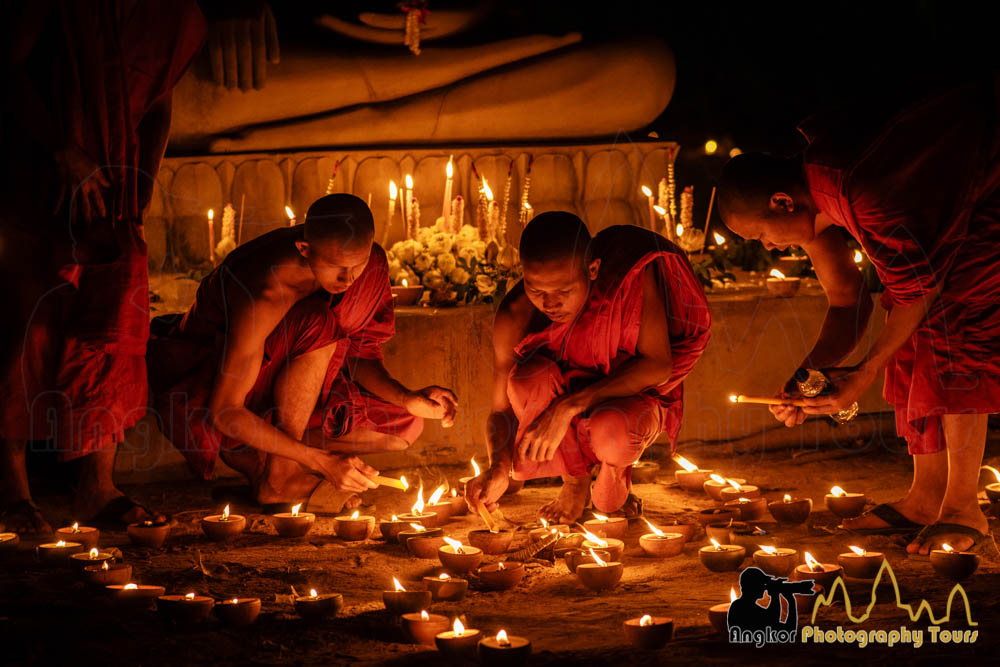
Group of monks lighting up candles during Meak Bochea 2025
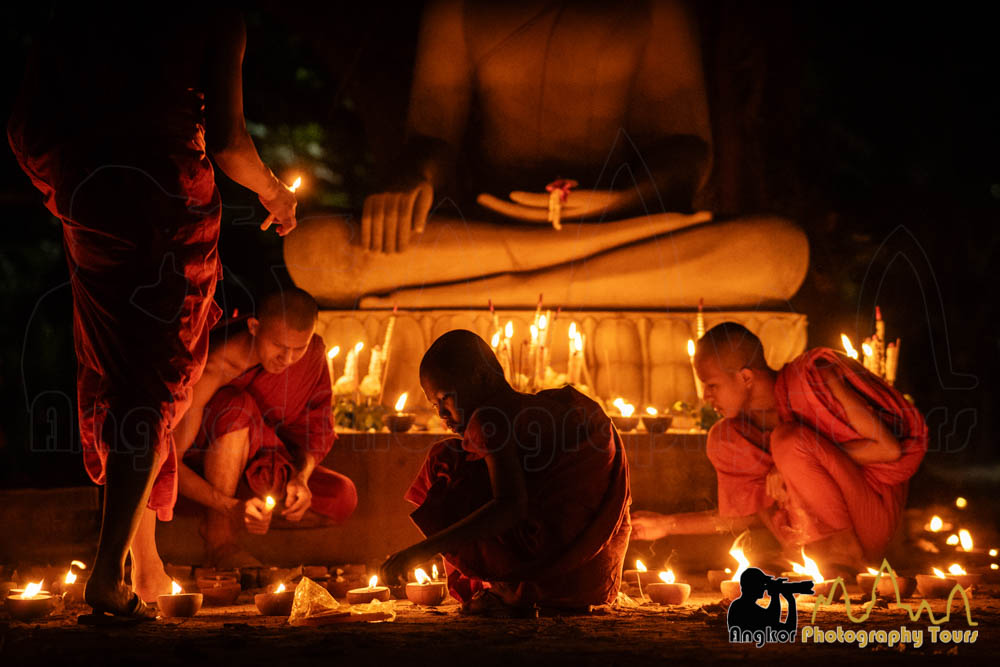
Group of monks lighting up candles during Meak Bochea 2025
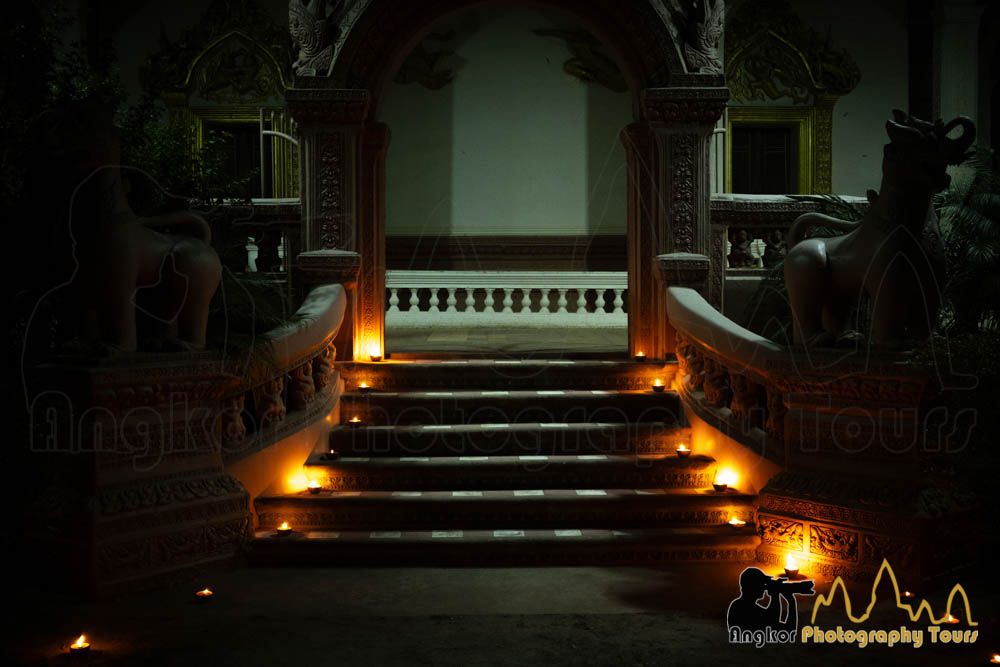
Temple stairs illuminated by candles
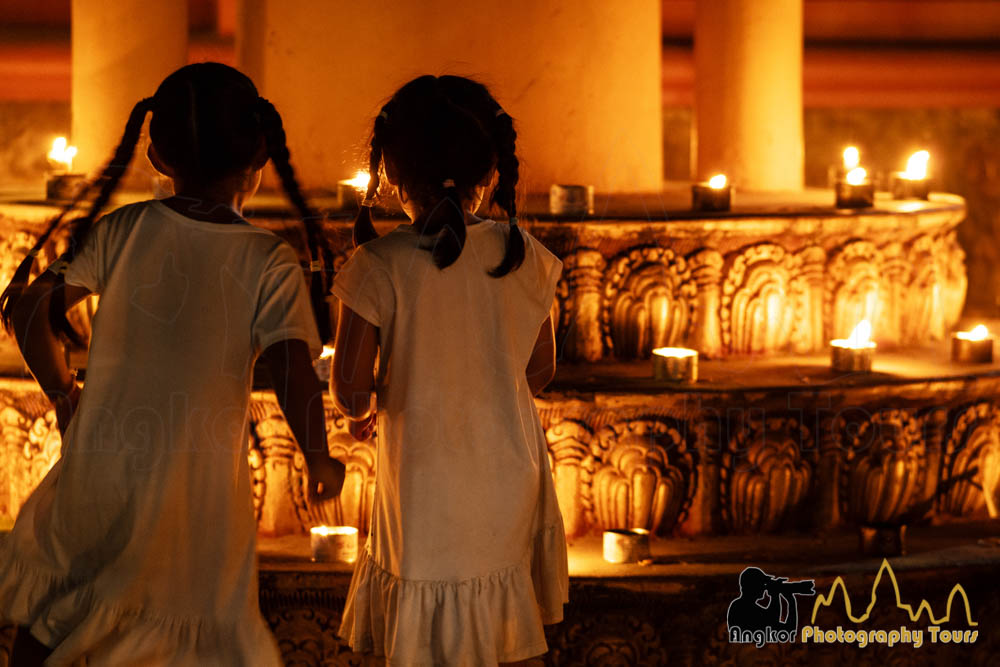
kids playing with candles during Meak Bochea
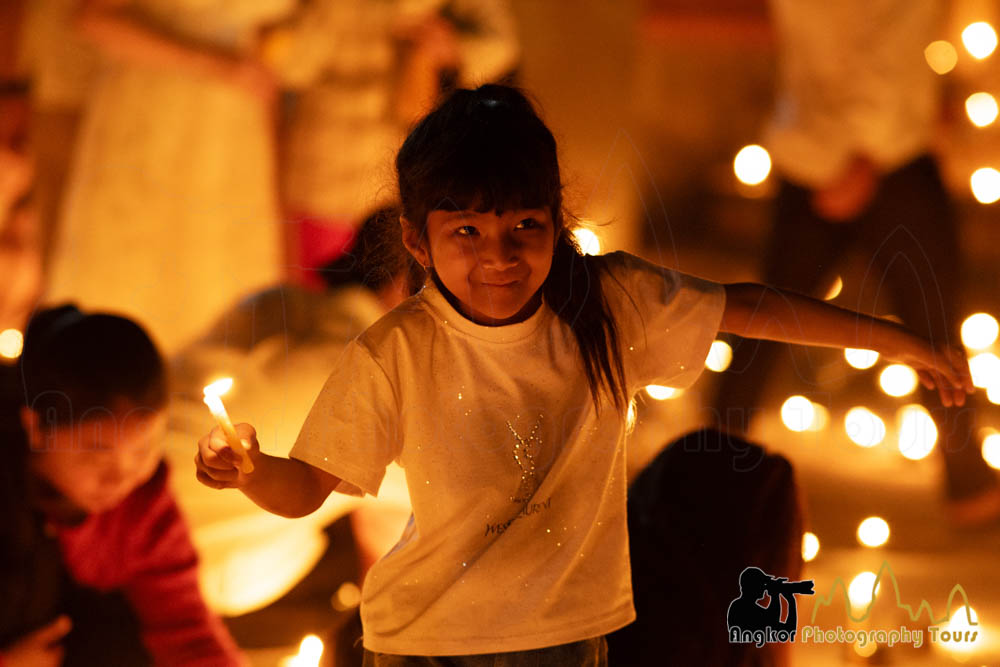
Kid playing with candle at meak bochea
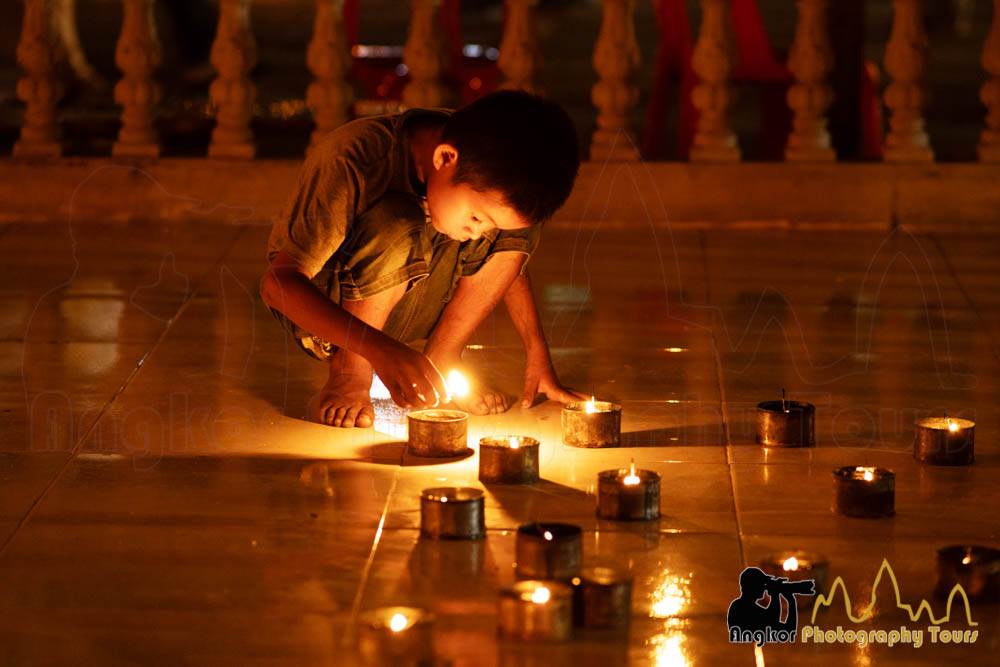
Kid lighting up candles during meak bochea night ceremony
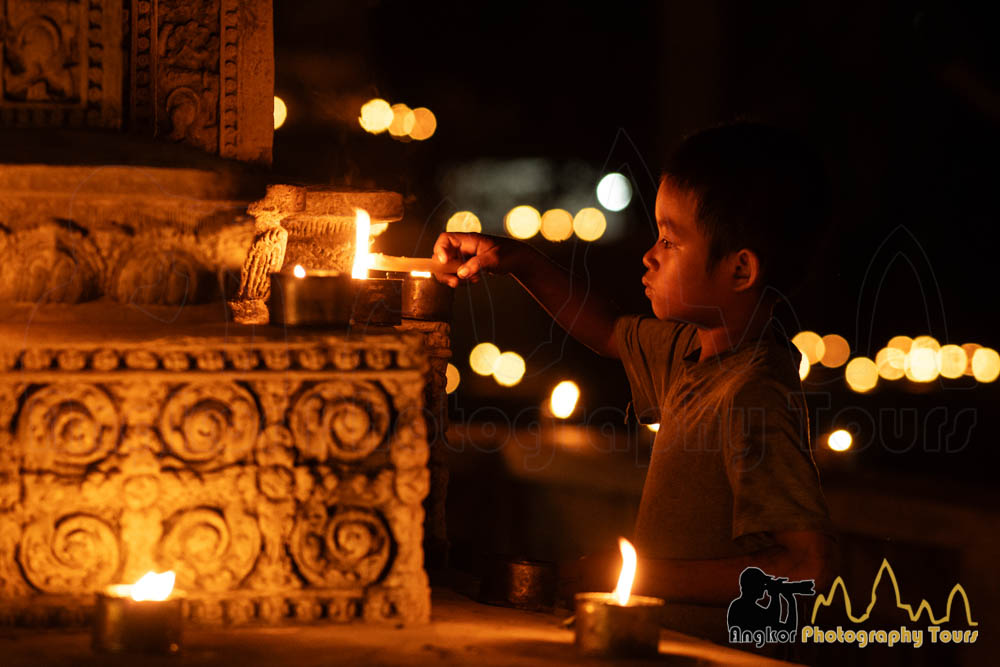
Kid lighting up candles at temple
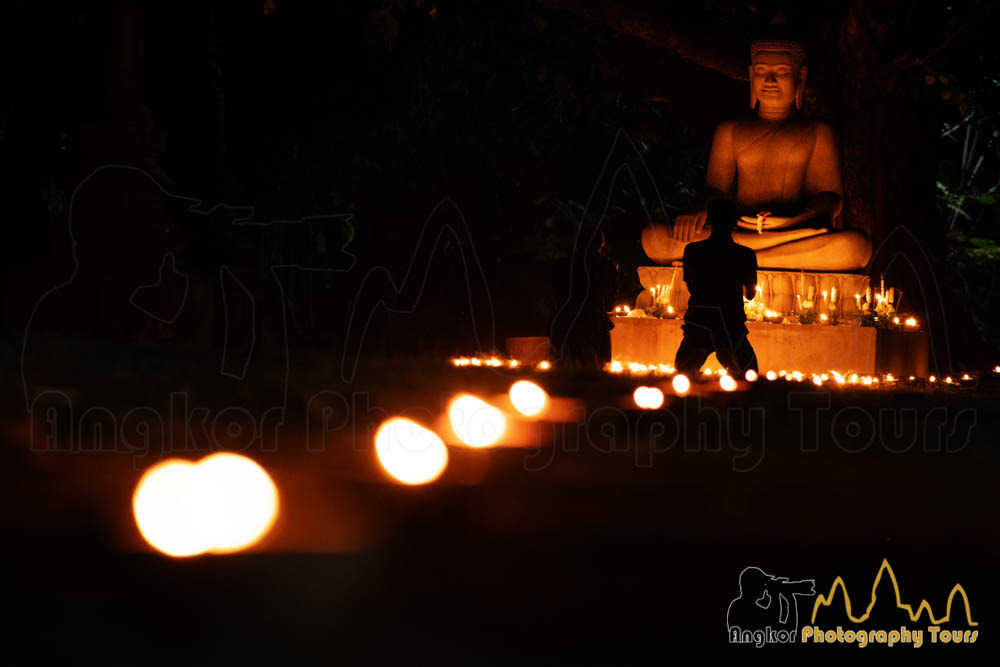
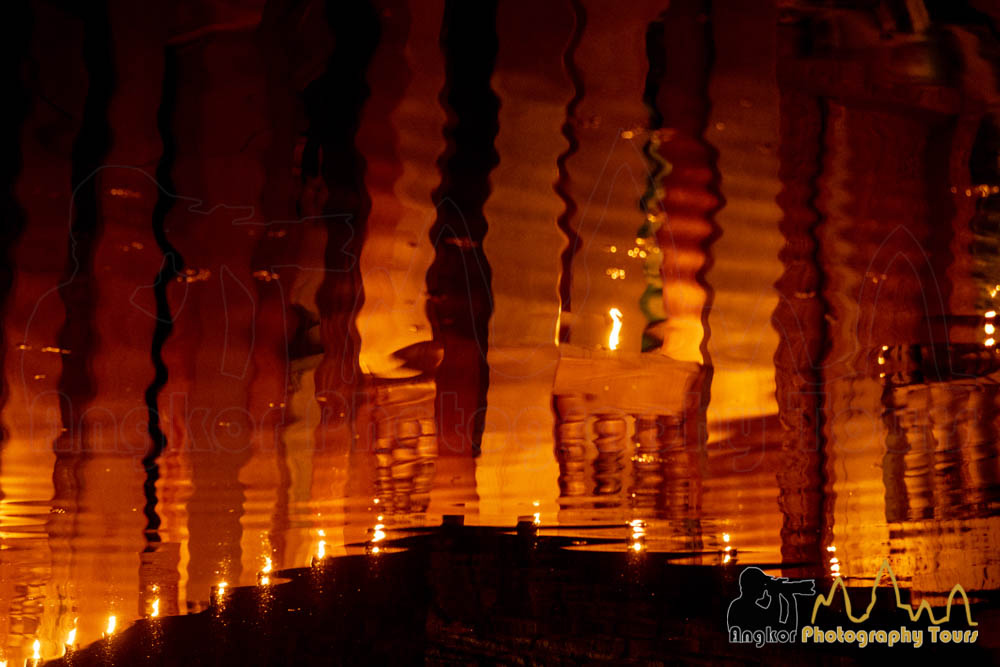
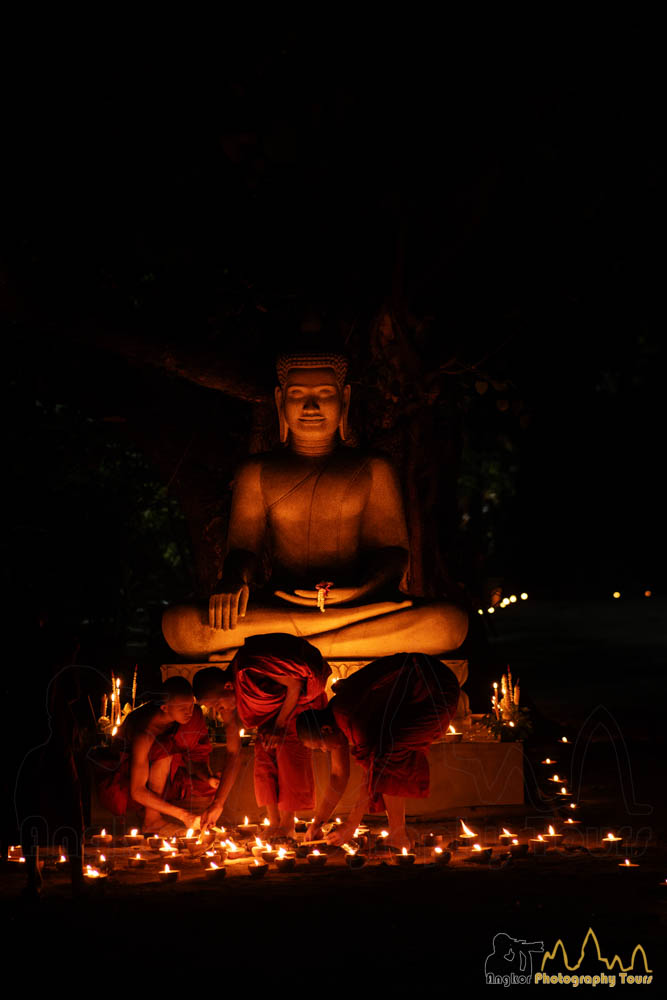
Group of monks lighting up candles during Meak Bochea 2025
Wat Damnak pagoda under a full moon
- Meak Bochea: Celebrating Buddha’s Final Teaching in Siem Reap Cambodia - February 14, 2025
- Angkor Wat Marathon - June 22, 2024
- Timelapse calculator - June 22, 2024
